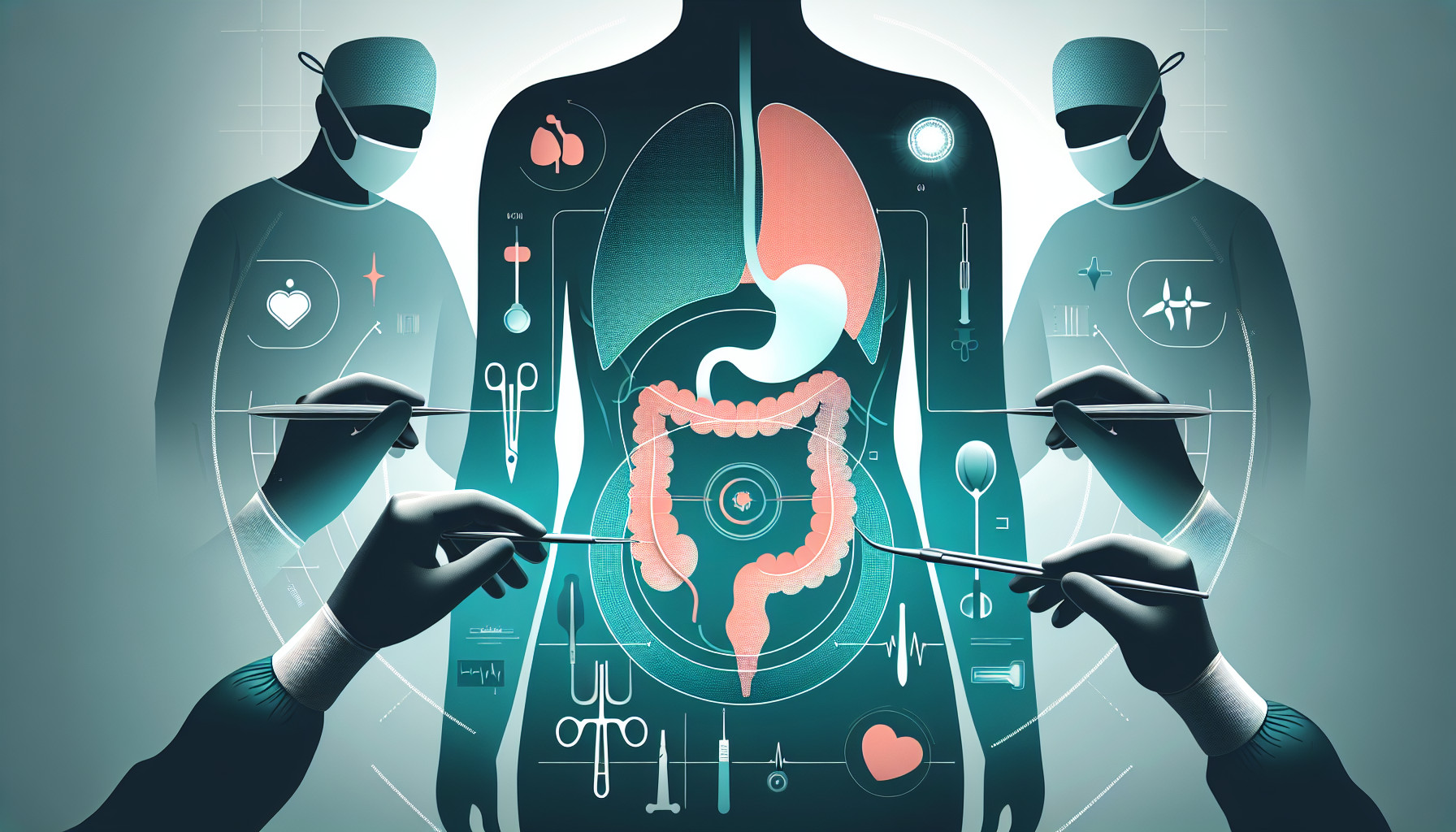Our Summary
This study looked at how two different types of surgery (laparoscopic and open) affect wound infection and healing in patients with a complicated form of appendicitis. Patients were split into two groups based on the type of surgery they received. The researchers then watched for any infections that developed after the surgery, and recorded the methods and results of any medical, radiological, or surgical treatments.
Out of 363 patients who had their appendix removed, 103 had complicated appendicitis. The rate of post-surgery wound infection was 15.9% in patients who had open surgery and 6.8% in those who had laparoscopic surgery. However, there was no significant statistical difference between the infection rates of the two groups.
The study found that patients with wound infections were more likely to need surgical drainage and to be re-admitted to the hospital. The researchers suggest that laparoscopic surgery should be the preferred method for patients with complicated appendicitis, as it may lower the chance of wound infection and promote better wound healing. They also recommend not keeping drains in patients for too long after an appendectomy to further reduce the chance of infection.
FAQs
- What types of surgery were compared in the study regarding wound infection and healing in patients with complicated appendicitis?
- What was the rate of post-surgery wound infection in patients who had laparoscopic surgery compared to those who had open surgery?
- What recommendations did the researchers make based on their findings in the study?
Doctor’s Tip
Overall, the study suggests that laparoscopic appendectomy may be a better option for patients with complicated appendicitis due to lower rates of wound infection and better wound healing outcomes. It is important to follow your doctor’s instructions carefully, including proper wound care and monitoring for any signs of infection after surgery. Additionally, discuss any concerns or questions you may have with your healthcare provider to ensure the best possible outcome.
Suitable For
Patients with complicated appendicitis, such as those with perforated or gangrenous appendicitis, are typically recommended laparoscopic appendectomy. This minimally invasive procedure is preferred for these patients as it may lower the chance of wound infection and promote better wound healing compared to open surgery. Additionally, laparoscopic surgery may result in a shorter hospital stay and quicker recovery time for patients with complicated appendicitis.
Timeline
Before laparoscopic appendectomy:
- Patient presents with symptoms of appendicitis such as abdominal pain, nausea, and fever
- Patient undergoes diagnostic tests such as blood tests, ultrasound, or CT scan to confirm appendicitis
- Patient is admitted to the hospital for surgery
- Patient may receive antibiotics to reduce the risk of infection before surgery
After laparoscopic appendectomy:
- Patient undergoes laparoscopic appendectomy surgery, which involves making small incisions in the abdomen and using a camera and specialized instruments to remove the appendix
- Patient typically has a shorter hospital stay and quicker recovery time compared to open surgery
- Patient may experience mild pain and discomfort at the incision sites
- Patient is monitored for any signs of infection, such as fever or increased pain
- Patient is discharged from the hospital and advised on post-operative care, such as wound care and activity restrictions
- Patient follows up with their surgeon for a post-operative appointment to ensure proper healing and recovery.
What to Ask Your Doctor
- What are the benefits of laparoscopic appendectomy compared to open surgery for complicated appendicitis?
- What is the risk of developing a wound infection after a laparoscopic appendectomy?
- How long is the typical recovery time for a laparoscopic appendectomy?
- What are the potential complications of a laparoscopic appendectomy for complicated appendicitis?
- How often do patients need surgical drainage after a laparoscopic appendectomy?
- What steps can be taken to reduce the risk of infection after a laparoscopic appendectomy?
- What is the likelihood of needing to be re-admitted to the hospital after a laparoscopic appendectomy for complicated appendicitis?
- How long should drains typically be kept in after a laparoscopic appendectomy?
- Are there any long-term effects or considerations to be aware of after a laparoscopic appendectomy?
- What is the success rate of a laparoscopic appendectomy for complicated appendicitis compared to open surgery?
Reference
Authors: Güler Y, Karabulut Z, Çaliş H, Şengül S. Journal: Int Wound J. 2020 Aug;17(4):957-965. doi: 10.1111/iwj.13347. Epub 2020 Apr 7. PMID: 32266786
